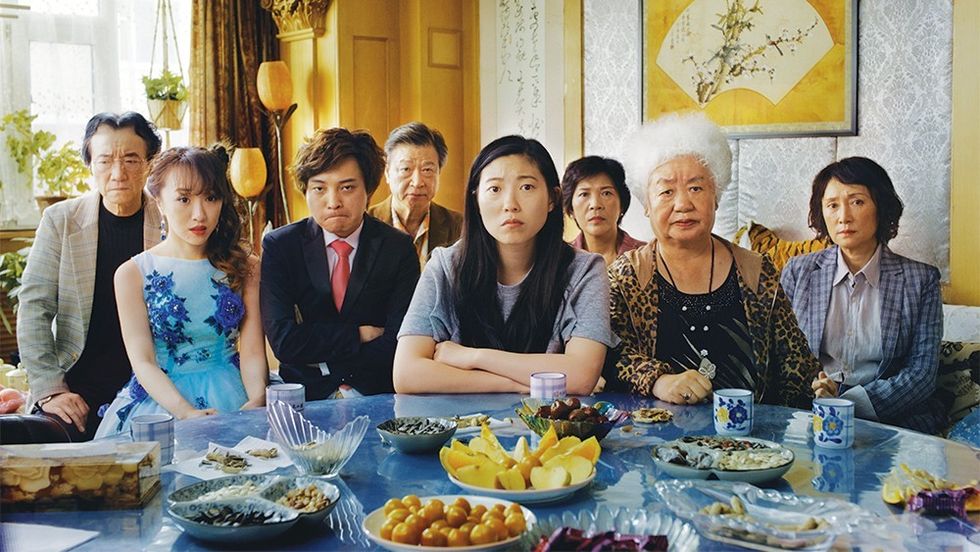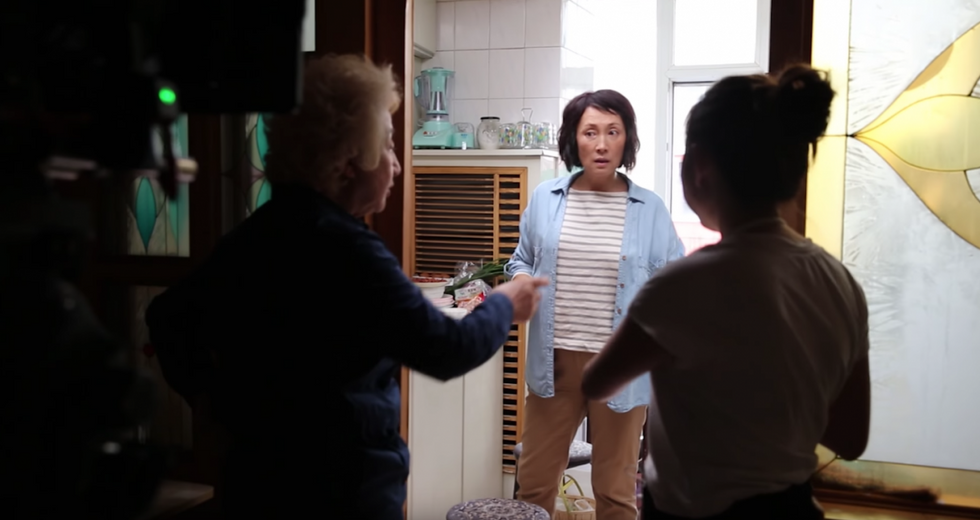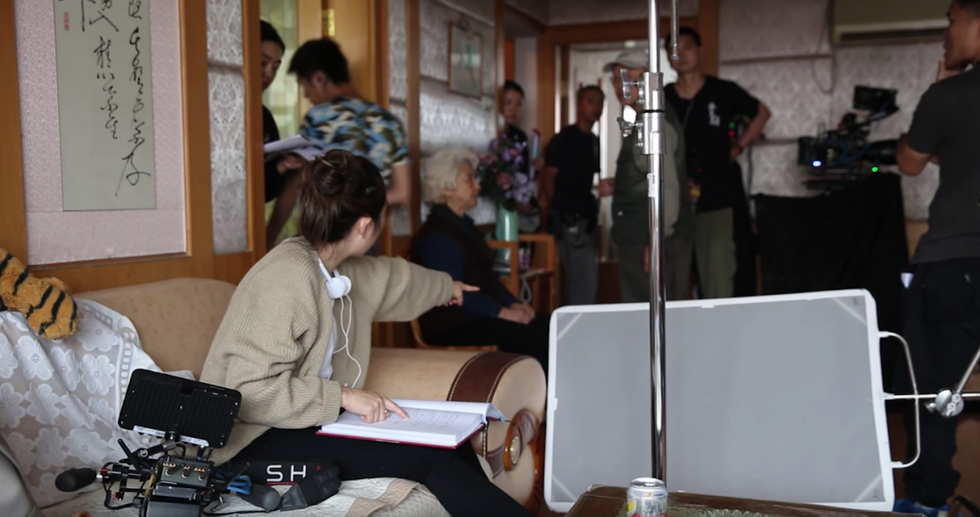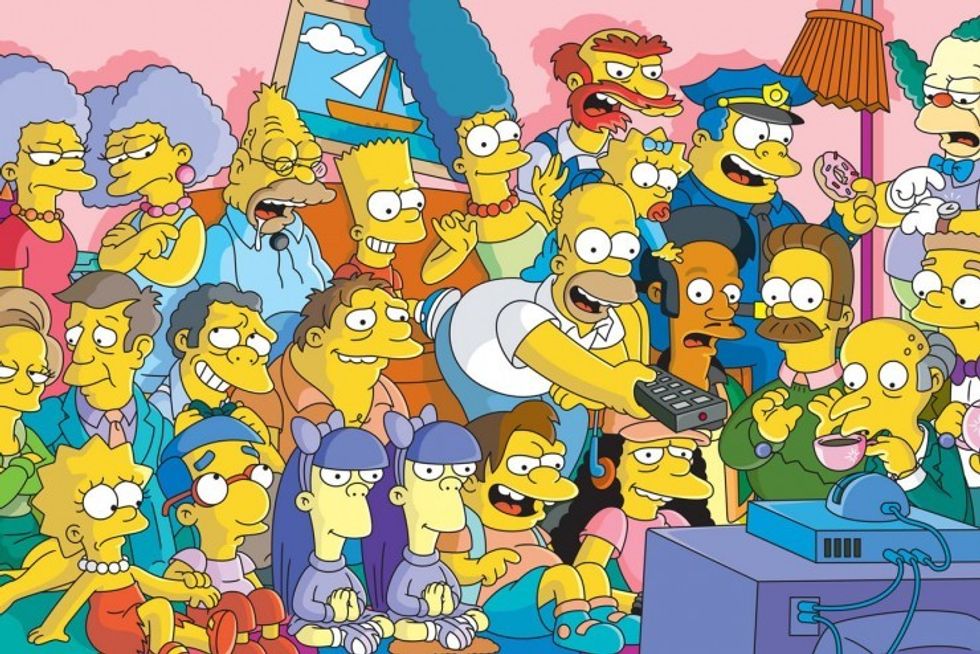‘The Farewell’: How Lulu Wang Turned Her Family’s Biggest Lie Into a Sundance Breakout
For the ‘The Farewell,’ Lulu Wang adapted the true story of her family’s decision to conceal a terminal cancer diagnosis from her grandmother.
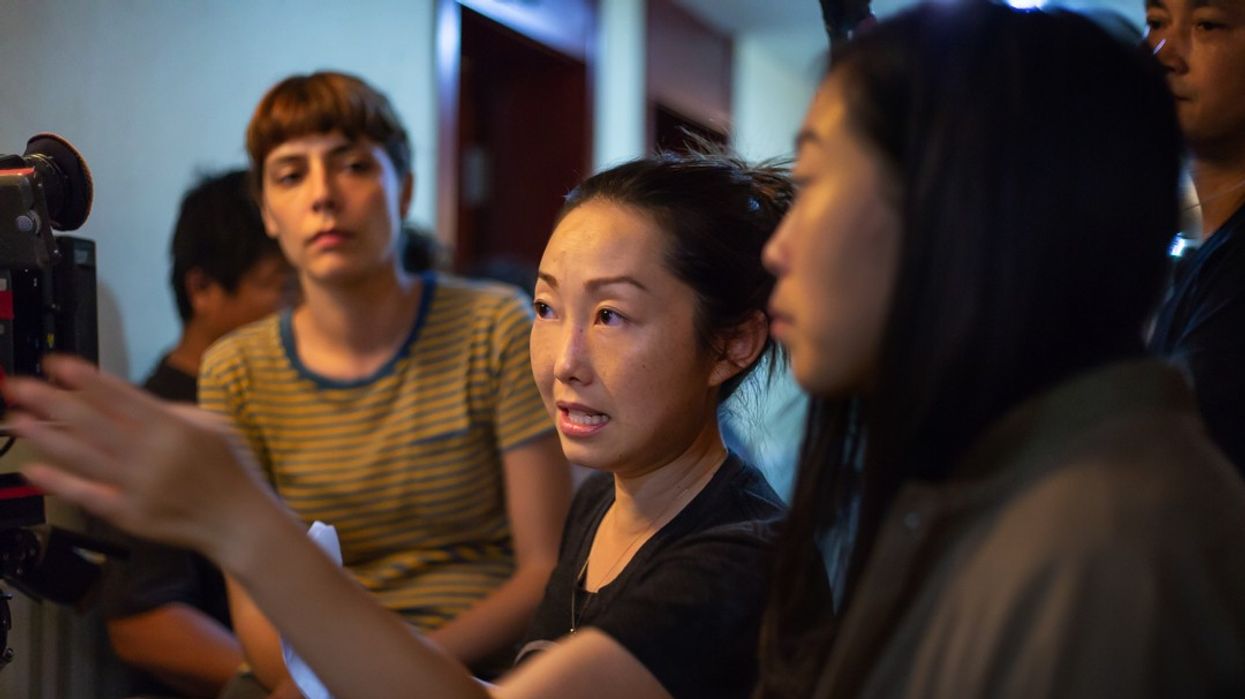
When Lulu Wang, the Chinese-American filmmaker who has quickly become the toast of this year’s Sundance Film Festival, learned that her family planned to keep her grandmother’s terminal lung cancer a secret from her, she was ambivalent. Didn’t her grandmother deserve to know? This is the ethical question that anchors the delightful family drama The Farewell, which Wang wrote and directed based on her own peculiar true story.
Opening with the intertitle “based on an actual lie,” The Farewell follows Brooklyn artist Billi (Awkwafina, in her first starring role) as she travels to her native Changchun, China to attend her cousin’s impromptu wedding, though the event is really just an elaborately improvised excuse for Billi’s relatives to see their beloved Nai Nai one last time. Back in Changchun after many years in the US, Billi is obliged to mask her grief and internal quandary while trying to clarify her own conflicted remembrance of the China she once called home.
A lovely, at times effortlessly hilarious movie, The Farewell—which was picked up by A24 for an estimated $6 million—gently introduces a series of social tensions: between honesty and responsibility, between unguarded emotion and sensible restraint, between nostalgia and inexorable change. And though Wang keeps most of the movie’s questions unanswered, she directs with an assured sense of her destination and the most fulfilling route to get there.
No Film School sat down with Wang at Sundance to discuss how she built the distinct worlds of New York and Changchun, how she found humor in juxtaposition rather than performance, and the film’s unique, unexoticized use of food.
No Film School: You initially told this story on “This American Life” before adapting it into a narrative screenplay. What was the moment you realized it would work well onscreen?
Lulu Wang: The first moment I considered this as a story that I would create in any way, shape, or form was when my family told me we were going back to China for this ruse of a wedding. They said, “you must contain your emotions. You can’t fall apart.” I was really torn as to whether or not this was the right thing to do. How could I contain my emotions? I couldn’t guarantee that I wouldn’t just burst into tears the minute I saw her.
So I decided to get a camera. I thought, what if I throw myself into work as a way to separate myself from the situation and, in a way, hide behind the camera? At the time, it was really an excuse for me to control myself. Later, I thought maybe I could use some of the footage, but it turned out terrible. I was too distracted. But we did end up using some of the audio for This American Life.
I didn’t immediately think, let me fictionalize this and write this as a feature film. That came a little bit later, after I came back and kept thinking about it. There were these scenes that would play in my head over and over. That’s when I said, OK, I’ve got to create something, whether that’s a movie or a short story.
NFS: During the premiere Q&A, Awkwafina said she hadn’t thought of the movie as a comedy until she heard the audience laughing. Did you consider this a comedy while making it?
Wang: There were certain parts where I was surprised by the audience’s laughter, certain lines that I thought were funny but got a much bigger laugh than I anticipated. My brand of comedy is that I don’t think that humans realize that we’re in a comedy. We don’t go through life saying, “I’m in a comedy, I’m in a drama.” You just live. I think it’s about having an outside perspective. The person who’s in the drama, in the melodrama, feels like their life is over when they didn’t get their kale salad exactly the way they wanted. It’s funny, because whatever’s causing the melodrama means so much to you in the moment.
For the movie, I wanted to find the comedy more within composition and scenario—the different layers of things happening as opposed to in the acting itself. In acting, there’s too much self awareness. If you’re trying to make somebody laugh then you’re not in the moment. For me, the humor is more in the juxtaposition of the serious and the ridiculous. One expression I’ve always loved is “the ridiculous is one step removed from the sublime.” I love exploring the distance between those two things, that you can go from ridiculous to sublime and back to ridiculous very quickly.
NFS: That idea of juxtaposition makes me think of the film’s opening shot: the scenic lake landscape that you then pull back to reveal is actually just a large painting in a hospital waiting room. How did you conceive of that?
Wang: I love that opening shot because it speaks to the idea of what is real and what is fake, and it sets up the theme in a cinematic way. That was an actual painting in one of the waiting rooms in the hospital where we shot. China is like that—they’re very over the top about presenting the beautiful in such a way that it’s surreal. Like this giant painting of this beautiful lake, and yet we’re in a hospital. So when my cinematographer Anna Franquesa Solano and I saw the painting and the way the chairs were lined up—they’re these old, ‘70s Communist-style chairs—we just said, instead of looking at all of these different locations, what if we just set it here? There was something so performative about it.
NFS: That performativity really comes alive in the sequences set in Changchun. Can you talk about how you approached shooting in New York City versus China, and how you built the worlds to feel so different?
Wang: One of the first things we talked about in terms of differentiating between the two worlds was lighting. In China there’s a lot of use of fluorescent lighting, and I hadn’t seen it represented onscreen in a realistic way. There’s the very cool Hong Kong look, but there isn’t a realism to that. I like fluorescent because it isn’t beautiful. It’s a harsh green light that doesn’t necessarily do the best things for skin tone. So the challenge became, how do we keep the natural feeling of these fluorescent lights but still create an aesthetic? Whereas in America, there’s a lot of warm lighting, pools of light, tungsten.
We also used different camerawork. In China, there is, again, a very performative aspect to the family, so we kept the camera very static and just allowed the scene to exist in this composed frame. It’s almost theatrical. Whereas in New York there was much more moving camera, and we’re closer in on people. It’s more alive.
NFS: It feels like food is present in nearly every scene. Can you talk a little about its function in the film?
Wang: When you’re making a film around Asians, Asian family, there’s inevitably going to be a lot of food. I intentionally didn’t want it to be like food porn, because that’s what people often tend towards—the exoticization of food. Instead what I was trying to do is make food into a source of tension for Billi. For Nai Nai, and in Chinese culture, food represents joy, so when you return home her instinct is to just feed you and feed you.
But when you are in a state of depression, as Billi is, you don’t want to eat. And yet part of the way of maintaining the lie is hiding the fact that you have no appetite. She doesn’t want Nai Nai to be like, “Whats wrong with you? Why can’t you eat?” So I wanted food to always be present and just overly abundant. By the time we get to the wedding, you start to see how excessive it is—that they just eat and eat and eat.
They’re also eating as a way to fill a hole or an emptiness when you have nothing to say, or you don’t know what to say. You just eat, or you say, “you eat!” For Chinese culture I think food is a kind of love language. Instead of saying, “I love you,” which is what Americans do, they say, “eat more.”
NFS: That works so well, because Billi’s resistance to food reflects her ambivalence about keeping Nai Nai’s condition a secret from her.
Wang: Right. That ethical dilemma is really at the heart of Billi’s internal struggle. There was a lot of discussion during the development process centering around, “well, what does she ultimately decide is the right thing to do?” And I said, “there’s no way I can put a ribbon on that in the movie, because I don’t have an answer myself.” Does anyone have an answer? I don’t think there is one clear answer. That was the challenge as well as the starting point for the story.
NFS: You mentioned in an interview that you lost a few days onset. Can you elaborate on that, and how you captured what you needed with less time than anticipated?
Wang: Everyone who was traveling from abroad to China had visas, and some people only had a 60 day visa. We pushed the film a bit because of Awkwafina’s schedule and got backed into the end date of our production. Within 12 hours everybody had to be on a plane or they would overstay their visa. So when Nora got food poisoning and we lost two days—one in a hospital, another in the New York house that we built in a warehouse in China—we couldn’t add to the end because everyone had to be on a plane. We had to reconceive all the scenes.
Because we had limited time, we decided to do a oner for the dinner scene in New York, where the dad is telling the joke. And I really love it now. There’s something so elegant about the oner. Also, you were talking earlier about the opening shot of the film—originally that wasn’t supposed to be the opening shot. We were going to open in New York, and we had a different waiting area for Nai Nai for that whole phone call scene. But when we lost a day in the hospital and couldn’t shoot in that hallway anymore, we went back and rescouted. That’s when we discovered the waiting room with the painting. We were like, “that’s so ridiculous. Is it ridiculous terrible or is it ridiculous amazing?”
I think with so many of these challenges—and filmmakers say this all the time—the challenges can and often do end up making the film better, because it forces you to think creatively outside of the box. I’d say 90% of the time, it ended up working out better because of these types of limitations.
NFS: I know you were originally seeking nonprofessional actors for all of the roles, and that you ended up using a combination of non-actors and actors. What was it like trying to cast people that captured the essence of your family?
Wang: Obviously, I love my family, so I was very invested in casting people that had an innate lovability about them. With the mom, for example, she’s one of the harshest characters in the movie, so it was especially important that I cast somebody who felt like she wasn’t just being mean for the sake of being mean. Someone who brought a tenderness to the role to contrast all of the tough love.
With the grandma, I wanted somebody who was just a really good actor, but also had a really lovable presence. It’s that tricky balance because you want the lovability, but you also want it to be real. I didn’t want her to come across as your typical baking cookies, sweet grandma. I wanted her to be three dimensional, with flaws and with quirks.
NFS: Because you shot in New York and Changchun, you directed in both Mandarin and English, sometimes simultaneously. Do you have any advice for filmmakers who want to direct in two languages?
Wang: To direct is to communicate. That’s the primary role of a director: to communicate what’s in your mind’s eye. So oftentimes, even if you speak the same language, it can be very difficult and there can be a lot of miscommunication. Because I’ve always been in between—I speak two different languages, and I grew up in Miami, so as a kid learning English I was also learning Spanish—I’ve always just used whatever I had available to me to get my message across. I would gesture, I would dance, you can sing. Whatever it takes.
The challenge of it mostly was just that it takes so much more time. You have to say things twice, and if there’s any kind of miscommunication you have to go back and reexplain it to get everybody on the same page. But that also makes it exciting. I had a lot of fun doing it.
For more, see our ongoing list of coverage of the 2019 Sundance Film Festival.
No Film School's podcast and editorial coverage of the 2018 Sundance Film Festival is sponsored by Blackmagic Design.
